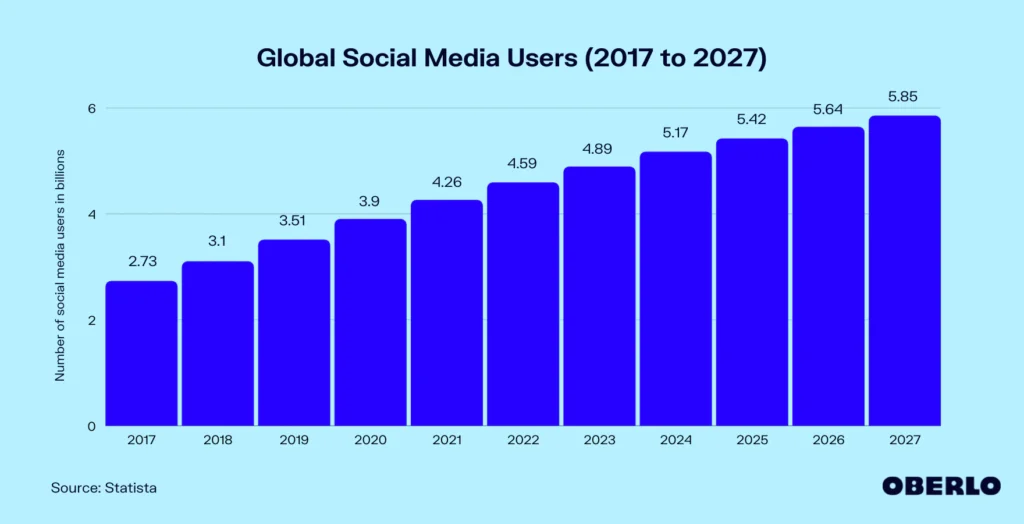When it comes to SEO, choosing the right domain name is a critical factor that can impact your website’s rankings. Your domain name not only identifies your website but also affects its visibility, credibility, and ranking on search engine results pages (SERPs).
A domain name serves as the online address of a website and is the first thing that users see when searching for a website. As such, the domain name plays a crucial role in establishing a website’s identity and reputation.
Domain names can affect several aspects of SEO, including website visibility, credibility, and user experience. In this article, we will explore the various ways domain names impact SEO and provide tips on choosing the right domain name for your website.
In this article, we will discuss the importance of domain names for SEO and their impact on SEO, and we will provide tips on choosing a domain name that can boost your website’s search engine rankings.
Table of Contents
What is a domain name?
A domain name is a unique identifier representing your website’s IP address. Users enter the address into their browsers to access your website.
Each domain name is made up of two parts: the actual name of the website, and a domain extension such as .com, .org, or .net.
For example, google.com is a domain name.
Domain names are registered through domain registrars and must be unique, as no two websites can have the same domain name.
A domain name consists of the top-level domain (TLD) and the second-level domain (SLD). In google.com, “.com” is the TLD, and “google” is the SLD.
Choose an SEO-optimized domain name faster with Kadence’s built-in domain search tools. Unlock higher search rankings with their SEO-focused themes and features. Maximize the SEO potential of your domain when you use the Kadence theme on your website. Use the Kadence WP discount code for a great discount.
Why Does a Domain Name Impact on SEO?

Domain names play a significant role in search engine optimization (SEO), as they are one of the first things that search engines and users encounter when accessing a website. Here are some key ways that you can know the impact of domain names on SEO:
- Keyword Relevance: Including relevant keywords in your domain name can help search engines understand what your website is about and improve your rankings for those keywords.
- Credibility: A professional and memorable domain name can make your website more credible and trustworthy to users and search engines.
- Domain Authority: A domain name that has been in use for a long time and has a good reputation can have a higher domain authority, positively affecting your website’s ranking.
- Brand Recognition: A domain name that includes your brand name can improve brand recognition and recall.
- Backlinks: Domain names can affect the quality and quantity of backlinks to a website, which is a critical factor in SEO.
- User experience: A domain name that is easy to spell and type can improve the user experience and increase the likelihood of repeat visits.
How Does a Domain Name Affect SEO?
A domain name can significantly impact a website’s search engine optimization (SEO). A domain name is the website address people type into their browser to visit a website. For example, “www.example.com” is a domain name.

Here are some ways in which a domain name can affect SEO:
a. Relevance
A relevant domain name can help improve a website’s search engine ranking. A domain name that includes keywords related to the website’s content can help search engines understand the website’s focus and relevance.
For example, if a website is about healthy eating, a domain name such as “www.healthyfoodguide.com” could help improve its SEO.
b. Memorability
A memorable domain name can improve a website’s branding and increase traffic. A domain name that is easy to remember can help people return to the website and recommend it to others. It can lead to more traffic, backlinks, and social shares, improving SEO.
c. Branding
A domain name that reflects a website’s brand can help improve SEO. A domain name consistent with a website’s brand identity can help build trust and authority with users and search engines.
For example, if a website is called “Best Tech Reviews,” a domain name such as “www.besttechreviews.com” can help improve its branding and SEO.
d. Length and simplicity
A short and simple domain name can improve SEO by making it easier for people to remember and type into their browsers. A domain name that is too long or complicated can lead to misspellings and confusion, which can reduce traffic and backlinks.
e. Domain name extension
The domain name extension can also affect SEO. A country-specific domain name extension such as “.ca” or “.uk” can help improve a website’s ranking in local search results. However, a domain name extension that is less common or less reputable can negatively impact a website’s SEO.
So choosing the right domain name is an essential aspect of SEO. A relevant, memorable, and brand-consistent domain name that is short, simple, and has a reputable extension can help improve a website’s search engine ranking, traffic, and overall online visibility. It’s important to consider all these factors when choosing a domain name for your website.
How to Choose a Domain Name for SEO?

Choosing an SEO-friendly domain name can be a crucial factor in the success of your website. Here are some steps to follow when selecting the best domain name for your website’s SEO:
a. Use keywords
Including relevant keywords in your domain name can help improve your website’s visibility in search engine results pages. Choose keywords that accurately describe your website’s niche or industry.
b. Please keep it simple and memorable.
Choose a domain name that is easy to remember and simple to type. It can help increase traffic and backlinks and improve the user experience.
c. Avoid numbers and hyphens
Numbers and hyphens can make it harder for users to remember and type your domain name and make it look spammy to search engines. Avoid them if possible.
d. Choose the right domain extension.
Using the right domain extension can also be necessary for SEO. A top-level domain such as “.com” is widely recognized and can help improve your website’s credibility. Country-specific extensions like “.co.uk” can help improve your website’s ranking in local search results.
e. Research potential trademark infringement
Ensure your desired domain name doesn’t infringe on trademarks or copyrighted material. It can lead to legal issues and damage your website’s reputation.
f. Check domain name history
Before registering a domain name, check its history to see if it has any negative SEO baggage, such as spammy backlinks or a poor reputation. It can negatively impact your website’s SEO performance.
g. Consider your brand
Choose a domain name that reflects your brand and identity. It can help build trust and recognition with users and search engines.
h. Test it out
Before finalizing your domain name, test it with friends, family, and colleagues to see if it’s memorable and easy to type. It can give you valuable feedback on improving your domain name for SEO.
Choosing the best domain name for your website’s SEO is essential in building a successful online presence. Following these steps can increase your website’s visibility in search engine results pages and improve the user experience.
Domain Name and Local SEO

Domain names can significantly impact local SEO, which is optimizing a website to appear in local search results for a specific geographic area. Let us go into detail.
a. Importance of Location-Based Domain Names:
A location-based domain name is a domain that includes the name of a particular geographic area or region.
For example, a plumbing company based in New York might choose a domain name like “newyorkplumbing.com.”.
Using location-based domain names can help improve a website’s visibility in local search results by making it clear to search engines and users that the website is relevant to a specific geographic area. It is essential for businesses that primarily serve customers in a particular region.
b. Targeting local customers with domain names:
In addition to improving a website’s visibility in local search results, location-based domain names can also help target local customers more effectively.
By including the name of a particular geographic area in a domain name, businesses can make it clear to potential customers that they are located in the same area and can provide services or products to them. It can increase the chances of local customers finding the website and purchasing or inquiring.
c. importance of TLDs in local SEO:
TLDs are the last part of a domain name, such as .com, .org, .net, etc. While TLDs do not directly impact a website’s search engine rankings, they can play a significant role in local SEO.
For example, a country-specific TLD, such as .uk or .ca, can signal to search engines that a website is primarily intended for users in that particular country. It can help improve the website’s visibility in local search results for that country.
Similarly, a generic TLD, such as .com, can help signal to search engines that a website is intended for a global audience.
So, choosing the right domain name is crucial for any website, but it is especially important for businesses looking to improve their local SEO.
By using location-based domain names and the right TLDs, businesses can improve their visibility in local search results and effectively target local customers.
However, it is important to remember that domain names are just one factor in local SEO. Businesses should also focus on other aspects, such as local content and citations, to improve their local search visibility.
Domain Age and SEO

When it comes to SEO, the age of a domain name can impact its search engine rankings. In this section, we’ll explore how domain name age affects SEO, the advantages of purchasing an older domain name, and the risks of buying an older domain name.
How Domain Name Age Affects SEO
Search engines, such as Google, use various factors to determine the relevance and authority of a website. One of these factors is the age of the domain name. Older domain names are generally seen as more trustworthy and established, as they have been around longer.
It can positively impact search engine rankings, as search engines are more likely to show web-based websites in search results.
Advantages of Purchasing an Older Domain Name
If you’re starting a new blog, purchasing an older domain name can have several advantages for SEO. These include:
- Established Backlinks: Older domain names may have more backlinks from other websites, which can improve their domain authority and search engine rankings.
- Based Traffic: Older domain names may already have established traffic, which can help your new website gain traffic more quickly.
- Established Reputation: Older domain names may have an established reputation in your industry, which can help your new website establish credibility more quickly.
Risks of Purchasing an Older Domain Name
While purchasing an older domain name can have advantages for SEO, risks are also involved. These include:
- Bad Reputation: Older domain names may have a bad reputation due to past usage, such as spamming or black hat SEO techniques. It can negatively impact your website’s search engine rankings and reputation.
- Penalties: If the previous owner of the domain name engaged in unethical SEO practices, such as buying links or using keyword stuffing, the domain might have received a penalty from search engines. This penalty can be transferred to your new website, causing it to suffer in search engine rankings.
- Expensive: Older domain names may be more costly, especially if they have established backlinks and traffic.
While domain name age can impact SEO, it’s essential to carefully consider the advantages and risks of purchasing an older domain name before deciding. It’s also necessary to conduct thorough research on the history and reputation of the domain before buying it.
Role of Domain and its Backlinks

Backlinks are an essential factor in SEO, and domain names can affect their quality and effectiveness. Here are some key points to consider:
How domain names affect backlinks:
- Domain names can impact the relevance and credibility of a website, which can affect its ability to attract high-quality backlinks.
- A relevant and reputable domain name can make it easier for other websites to trust and link to your content.
- On the other hand, a domain name that is not relevant or trustworthy can deter other websites from linking to your content.
Quality of backlinks and domain names:
- The quality of backlinks is more important than the quantity of backlinks, and a domain name can influence the quality of the backlinks that a website receives.
- Backlinks from high-authority websites relevant to your content are more valuable than backlinks from low-quality or irrelevant websites.
- If your domain name reflects the topic or industry of your website, it can increase the likelihood of receiving backlinks from authoritative sources in your industry.
Importance of domain name in anchor text:
- The anchor text of a backlink can also impact the SEO value of the link, and the domain name can play a role in the anchor text.
- If your domain name contains relevant keywords, including the domain name in the anchor text of backlinks can be helpful.
- However, overusing domain names in anchor text can be seen as spammy and may harm your SEO. It’s essential to strike a balance and focus on creating high-quality content that naturally attracts backlinks.
Domain Name in Social Media

Regarding social media, your domain name can play a significant role in promoting your website and improving SEO. Here are some essential points to consider:
Importance of domain names in social media profiles:
Your domain name should be consistent across all your social media profiles to make it easy for users to find and recognize your brand. It should also be displayed prominently on your profiles, preferably in your bio or username.
Impact of social signals on SEO:
Social signals, such as likes, shares, and comments, can positively impact your website’s SEO. Sharing your content on social media can help increase your visibility and attract more backlinks to your website.
Best practices for domain names in social media:
To optimize your domain name for social media, keep it short, memorable, and easy to spell. Avoid using numbers or hyphens, as they can make it harder for users to remember and type in your domain name. Additionally, consider using a branded domain name, such as your company name, to improve recognition and brand awareness.
Your domain name can significantly impact your social media presence and SEO. Choosing a memorable and consistent domain name and optimizing it for social media can improve your brand recognition and attract more visitors to your website.
Domain and Website Architecture

A website’s domain name and architecture play an important role in SEO. Here are some essential points to keep in mind:
The importance of domain names in website architecture:
- A domain name is the foundation of your website’s online presence and serves as its address.
- The structure of your domain name can affect your website’s visibility and ranking in search engine results pages (SERPs).
- Your domain name can also impact how users perceive your website and brand.
Role of subdomains and subdirectories in SEO:
- Subdomains are separate sections of a website that are part of the main domain but have their own unique URL. Subdomains can help organize content or create respective web properties for different products or services.
- Subdirectories are sections of a website that are part of the main domain and are organized within the URL structure. Subdirectories can be used to manage website content or create separate sections for different products or services.
- Subdomains and subdirectories can impact SEO, but the best approach will depend on your specific needs and goals.
Best practices for website architecture and domain names:
- Choose a domain name that is relevant, easy to remember, and reflects your brand.
- Consider using subdirectories instead of subdomains, as subdirectories are generally more effective for SEO and can help consolidate authority to your primary domain.
- Use a clear and logical URL structure that reflects the hierarchy of your website’s content.
- Ensure that your website’s architecture is mobile-friendly and easy to navigate for users and search engines alike.
By considering the relationship between your domain name and website architecture, you can create a website optimized for search engines and provide a positive user experience.
- What is Blogging: A Brief History and Its Benefits (The Evolution of Blogging)
- 15 Best ways to promote blog posts for better traffic and ranking
- 80+ Best Places of Royalty Free Stock Images for Bloggers
Domain Changes and SEO
A domain name is an address that identifies a website on the internet. Sometimes, website owners may need to change their domain name for various reasons, such as rebranding, expanding their business, or changing the domain extension.
However, changing a domain name can impact a website’s SEO and online presence. This section will discuss the importance of domain name changes, their associated risks, and the best practices for changing domain names.
Importance of Domain Name Changes
There could be several reasons a website owner changes their domain name. Some of the reasons are:
- Rebranding: If a website owner changes the name or logo of their brand, they may need to change their domain name to reflect the new brand identity.
- Expanding Business: As a business grows, it may need to develop its products or services. Changing the domain name could reflect the new business direction.
- Changing the Domain Extension: A website owner may want to change the domain extension from .com to .net for various reasons.
Risks of Changing Domain Names
Changing a domain name can have several risks impacting a website’s SEO and online presence. Some of the risks are:
- Loss of Traffic and Rankings: When a domain name changes, search engines may take time to recognize the new domain name and update their rankings. It can lead to a temporary drop in traffic and rankings.
- Broken Links: A domain name change can lead to broken links, negatively impacting user experience and SEO.
- Confusion and Brand Recognition: If a website changes its domain name, it can lead to clarity among users and positively impact brand recognition.
Best Practices for Changing Domain Names
Website owners should follow best practices to minimize the risks associated with changing a domain name. Some of the best practices are:
- Plan the Change: Plan the domain name change carefully to minimize the impact on SEO and user experience.
- Keep the Same URL Structure: When changing a domain name, website owners should keep the same URL structure to minimize broken links.
- Redirect Old URLs: Redirect the old URLs to the new URLs to ensure that users and search engines can find the new website.
- Update Social Media Profiles: Update the social media profiles with the new domain name to maintain brand consistency.
- Notify Search Engines: Notify search engines of the domain name change using the Google Search Console or other webmaster tools. It can speed up the process of updating the rankings.
Changing a domain name is a significant decision that can impact a website’s SEO and online presence. Website owners should carefully plan the change and follow best practices to minimize the risks and ensure a smooth transition.
Role in Branding
A domain name is not just an address for your website but also a critical part of your branding strategy. Here are some points to consider:
importance of domain names in branding
- A domain name is often the first thing a user sees when interacting with your brand online, and it can leave a lasting impression.
- A good domain name can make your brand more memorable, distinguishable, and recognizable in the minds of your customers.
- A strong, memorable domain name can help build trust and credibility with your target audience.
How domain names affect brand recognition?
- Your domain name should be consistent with your brand identity and reflect your business’s tone, style, and values.
- A domain name that is easy to remember, pronounce, and spell can help increase brand recognition and recall.
- Using a domain name that is too similar to an existing brand can lead to confusion and legal issues.
The importance of domain names in online reputation management:
- Your domain name is crucial to your online presence and can impact your online reputation.
- Choosing a domain name consistent with your brand values can help prevent negative associations and improve your reputation.
- Registering multiple domain extensions and variations of your domain name can help protect your brand and prevent others from misusing it.
Choosing a domain name that aligns with your brand identity, is memorable and easy to remember, and reflects your business values can significantly impact your branding and online reputation.
Domain Name for better E-commerce SEO
E-commerce websites rely heavily on search engine optimization (SEO) to attract potential customers and increase sales. The domain name of an e-commerce website plays a crucial role in its SEO efforts. Here are some essential points to consider for e-commerce SEO:
importance of domain names in e-commerce SEO
- A domain name that reflects the products or services offered on the e-commerce website can help attract relevant traffic.
- A domain name that is easy to remember and type can help increase direct traffic to the website.
- Including relevant keywords in the domain name can help improve search engine rankings for relevant queries.
Best practices for domain names in e-commerce
- Choose a domain name that reflects the brand and the products or services offered on the website.
- Use a popular TLD such as .com, .org, or .net.
- Avoid using hyphens and numbers in the domain name.
- Keep the domain name short and easy to remember.
How domain names affect product pages in e-commerce?
- Using relevant and descriptive domain names for product pages can help improve their search engine rankings.
- Including relevant keywords in the domain name of a product page can help improve its relevance for relevant search queries.
- Using subdomains or subdirectories for product pages can help organize them better and improve their SEO value.
Domain Name and Mobile SEO
Optimizing a domain name for mobile devices is crucial for SEO, as mobile devices continue to dominate internet usage. Here are some essential factors to consider:
importance of domain names in mobile SEO
- User experience: A mobile-friendly domain name can enhance the user experience for mobile users, making it easier for them to access your website from their mobile devices.
- Site speed: A mobile-friendly domain name can help improve site speed on mobile devices, a key ranking factor for mobile SEO.
Best practices for mobile-friendly domain names
- Short and simple: Mobile users are often on the go, and a domain name that is short and easy to remember can help improve the user experience.
- Avoid hyphens and numbers: Hyphens and numbers can make a domain name harder to remember and type on a mobile device.
- Use a responsive design: A responsive design ensures your website is optimized for all devices, including mobile devices.
Role of domain names in mobile-first indexing
Mobile-first indexing is Google’s crawling and indexing of websites based on their mobile version. Having a mobile-friendly domain name is crucial for SEO, as it can help improve your website’s visibility on mobile devices.
Frequently Asked Questions
What is the domain name’s impact on SEO?
Domain names can have a significant impact on SEO. A domain name relevant to the website’s content can improve search engine rankings. On the other hand, a domain name that needs to be more generic or unrelated can help rankings. Other factors, like domain age, backlinks, and social media presence, can also affect SEO. It’s essential to choose a domain name that is easy to remember and represents the brand or business accurately.
How does domain change impact SEO?
A domain name change can significantly impact SEO, both positively and negatively. If the change is not handled correctly, it can considerably lose rankings and traffic. However, if the change is done correctly, it can improve SEO results.
Does buying extra domain names help SEO?
Simply buying extra domain names will not necessarily help SEO. If those domains are irrelevant or do not provide any value to the website or its users, it can harm SEO. However, if the additional domains are relevant and valuable, they can support SEO efforts.
Does moving domains affect SEO?
Moving a domain can significantly impact SEO if not appropriately handled. It should not impact SEO substantially if the move is made correctly and the new domain is properly redirected and optimized. However, if the activity is not handled correctly, it can significantly lose rankings and traffic.
Does having a.com improve SEO?
While having a .com domain can provide some advantages regarding user perception and trust, it does not necessarily improve SEO. Search engines do not prefer any particular TLD (top-level domain) over others. However, having a relevant and memorable domain name is more important than the TLD.
Is having two domains bad for SEO?
Having two domains can potentially harm SEO if the domains are not correctly managed and maintained. If the content is duplicated across both domains or if conflicting signals are sent to search engines, it can result in a loss of rankings and traffic. However, if the domains are appropriately managed and maintained, it can be a viable strategy for supporting SEO efforts.
How much does a domain impact SEO?
A domain name can have a significant impact on SEO, as it is one of the first things that search engines use to understand what a website is about. The right domain name can help establish relevance and authority for a particular topic or industry, positively impacting SEO.
Conclusion
Domain names play a crucial role in the success of any website’s SEO strategy. Here’s a recap of the impact of domain names on SEO:
- Domain names are one of the key factors that search engines consider when determining the relevance and authority of a website.
- A well-chosen domain name that reflects your brand, contains relevant keywords, and is easy to remember can significantly boost your website’s search engine rankings.
- Conversely, a poorly chosen domain name that is too long, difficult to remember, or irrelevant to your website’s content can harm your SEO efforts.
- In addition to choosing the right domain name, following best practices for domain name registration, hosting, and management is essential to ensuring that your website is optimized for search engines.
- Check out my favorite article on pillar content creation.
Choosing the right domain name for your website is critical to your SEO strategy. A good domain name can help you stand out from your competitors, attract more visitors, and improve your search engine rankings.
So, a well-chosen domain name that is relevant, memorable, and reflects your brand can significantly improve your website’s SEO. By following best practices for domain name registration, hosting, and management, you can ensure that your website is optimized for search engines and attracts more visitors.





